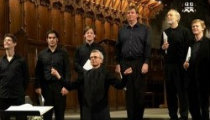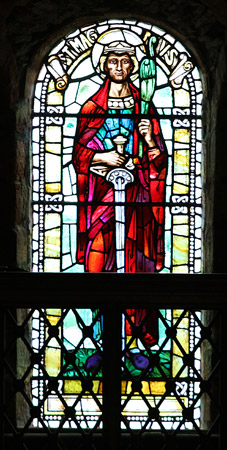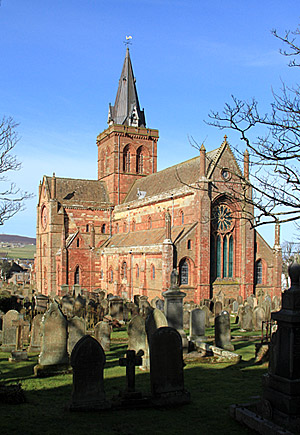Jon Davies
Monday, 1st August, 2016
The Skinny:
http://www.theskinny.co.uk/music/interviews/composer-curator-ailie-robertson-michael-betteridge-anna-braithwaite
The final projects supported by Sound and Music’s 2016 Composer-Curator programme are about to head out on tour. We spoke to artists Ailie Robertson, and Michael Betteridge and Anna Braithwaite, about how personal and historical stories have informed their distinctive works
Curatorship is as much about identity as it is aesthetics – the chance to marry the two together to gather an expanse of stories.
Two new curatorial projects supported by Sound and Music (the UK’s leading organisation for new music) – Nobilis Humilis: Echoes and Traces by Scottish harpist and composer Ailie Robertson, and In Their Own Words by composers Anna Braithwaite and Michael Betteridge – draw from matters close to home in order for the artists to explore their own work, as well as collaborate in varying unique ways.
…
Echoes and Traces: Scottish history in the work of Ailie Robertson
For Ailie Robertson, digging into Scottish heritage has influenced her work Echoes and Traces – in helping her to represent her own upbringing, and in her desire to retain a sense of pride in ancient history.
With the help of Creative Scotland and Sound and Music, Robertson has commissioned eight new choral works inspired by a 900-year-old plainsong, Nobilis Humilis, from a wide range of composers and songwriters including Sally Beamish, Aidan O’Rourke and electronic musician Matthew Whiteside.
“I grew up with traditional music, so the more I try to ignore it the more it starts popping up, but it makes my music different from a lot of UK contemporary music,” Robertson says. “There was a lot of snobbery [towards traditional music], and people didn’t take that seriously.”

[Cappella Nova, who will perform the eight commissioned pieces]
As with much maligned music, the perception of folk music being primitive and simple is a case of not reading enough into its subtleties. “On the surface there are simple phrases and structures, but [as] with anything else there are huge complexities,” Robertson says. “If you look into folk song there is what is perceived as out-of-tuneness, but that was often a stylistic option, and microtonality is inherent in traditional music. There is also really interesting ornamentation that can be brought forward into contemporary music.” It would be easy for Robertson to simply re-enact ancient music, but her driving aim is to bridge the gap between the two.
The project is outward looking: supplementary to the eight-date tour in early September is a learning programme from Historic Scotland, in which Robertson will visit schools across Scotland to introduce young children to early folk music. “One of the most important things is to get kids to realise that composers are still living,” she says. “When I was in school [all the composers] I studied were dead white males! So we need to show that female composers exist, and then we also want children to engage in different ways. We’re going to start with the text, then see where they take it – trying things with their voices, manipulating their work with electronics, or going out and doing some field recordings.”
Giving children an early entry into composition is important to Robertson, who says she never thought she could pursue it as a career – especially when, she feels, Scottish contemporary classical lags behind England. “It’s about getting audiences to recognise all the living composers here. We have to support that or else the music stops.”
The Echoes and Traces tour acknowledges the rich history of Scotland and its relationship with choral music, taking in dates at Stirling Castle, Iona Abbey and Glasgow Cathedral, amongst others. “We wanted to keep the performances totally acoustic, so no amplification of the [30-piece] choir, but we also wanted the sense of history, and [to] make the composition really relevant,” Robertson says. She hopes the tour can be Janus-faced, both reviving Scottish culture and creating a platform for Scotland to look outwards. “It’s a small country; we do have great orchestras but there aren’t many opportunities within them for working composers. But the more we can put things on that are accessible, such as vocal music in historic places, [the more] we can capture an audience that wouldn’t otherwise come to a new music performance.”
In Their Own Words is at the International Anthony Burgess Foundation, Manchester, 24 Aug; Quarterhouse, Folkestone, 16 Sep, and Hackney Showroom, London, 1 Oct. Follow the project at @their_own_words.
Nobilis Humilis: Echoes and Traces tours Scotland 31 Aug-8 Sep. Full tour dateshere. Follow Ailie: @ailierobertson.
These projects have been developed as part of Sound and Music’s Composer-Curatorprogramme, which is supported by the Arts Council, PRS for Music Foundation and Help Musicians UK.
We are interviewing all of 2016’s Composer-Curators here at The Skinny. Read our interviews with Composer-Curators Emma Welton, Isabel Jones & Duncan Chapman, and Neil Luck.
soundandmusic.org/projects/welcome-composer-curator
 This was a magical evening of new choral music by eight Scottish composers inspired by ‘Nobilis Humilis’, an early plainchant piece honouring Orkney’s murdered Viking Saint, Magnus. Cappella Nova sang this complex, contemporary music with great skill and sensitivity; they were particularly impressive using a range of unusual, cutting-edge vocal techniques, required by the composers to express a mixture of tragedy and rejoicing within the work. Orkney is a collection of islands with a common thread (as are these compositions) – and this is what I took from ‘Echoes and Traces’. For me the overwhelming conjured presence was the landscape of Orkney – enduring, remote, bleak, dramatic – which in busy central Edinburgh is quite an achievement for both composers and performers!
This was a magical evening of new choral music by eight Scottish composers inspired by ‘Nobilis Humilis’, an early plainchant piece honouring Orkney’s murdered Viking Saint, Magnus. Cappella Nova sang this complex, contemporary music with great skill and sensitivity; they were particularly impressive using a range of unusual, cutting-edge vocal techniques, required by the composers to express a mixture of tragedy and rejoicing within the work. Orkney is a collection of islands with a common thread (as are these compositions) – and this is what I took from ‘Echoes and Traces’. For me the overwhelming conjured presence was the landscape of Orkney – enduring, remote, bleak, dramatic – which in busy central Edinburgh is quite an achievement for both composers and performers!





